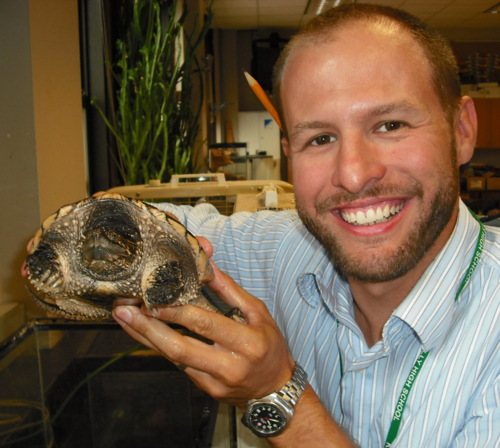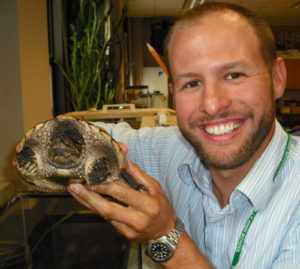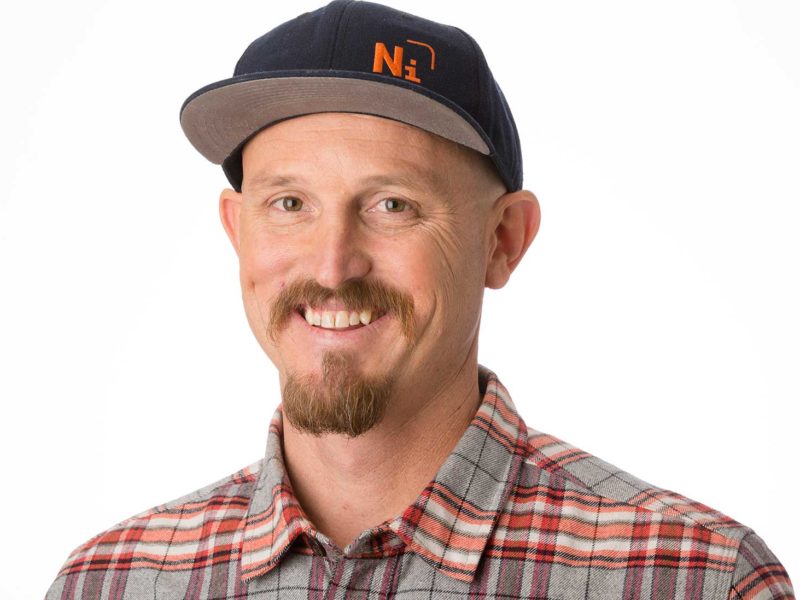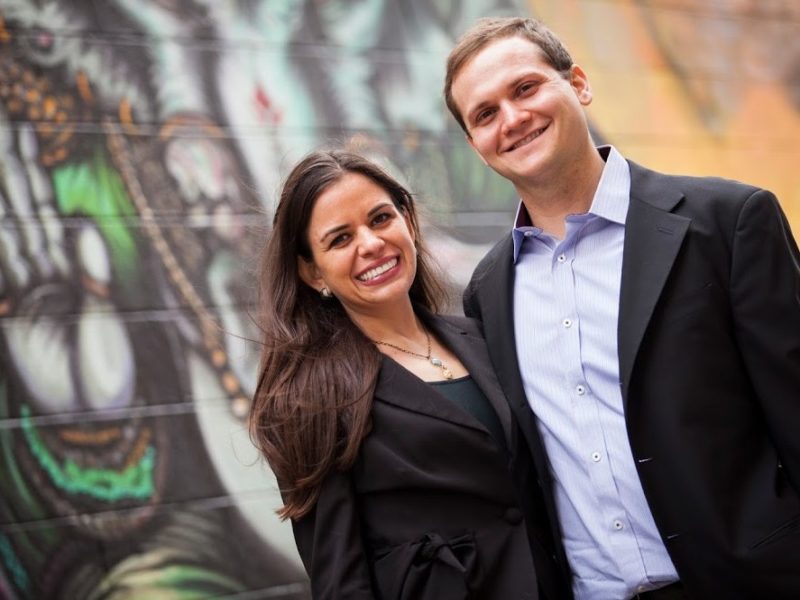
Science & Students: Aaron Reedy
Aaron Reedy epitomizes a “star teacher” – interactive, innovative and inspirational. Aaron, Chicago’s own Thomas Kelly High School Science Teacher, was selected in 2011 as a CIW Idea Award Winner: Star Teacher, of course! By using innovations in the classroom, Aaron connects his students to science in a BIG way!
Earlier this month, thousands of TED conference attendees heard his big ideas at their session on “The Classroom”. You can find a recap of his TED Talk here.
Check out our conversation with Aaron – you’ll realize why he snatched an Idea Award!
1. What inspires you?
That is a really broad question because I think there are so many things to find inspiring in many different ways.
Intellectually I am inspired by unanswered questions and big projects. For the past year I have been working with evolutionary biologist Dan Warner along with Harvard PhD candidate Alexis Harrison on a project in Florida to investigate why the 50/50 sex ratio evolved in so many species. We are using nine entire islands in Florida as living laboratories for lizard populations to track evolution where we have artificially skewed the sex ratio. The project is big, but it gives us an opportunity to explore a big picture question in evolution.
As human beings my students inspire me every year. I see certain kids daily that have everything working against them- extreme poverty, gangs, sometimes parents in gangs, homelessness, abusive parents- but they are still kids. They haven’t become embittered by the world no matter how tough things around them are. I find that inspiring.
2. What difference do you see in your student’s reactions to your innovative teaching methods as compared to others?
I’m not sure that any of my methods are truly innovative in the sense that they are completely original. I really just use project based learning, inquiry science, and good old fashioned lecture. I think the innovative things that have happened in my classroom are really just how far we have been able to push the scale and standards of project based learning at the high school level through the connections we have been able to establish with some of the best working scientists out there. Last year with funding from the National Science Foundation and the support of the Janzen Lab at Iowa State, we conducted a study of nest site selection in lizards. The experiment involved more than 100 lizards and 30 controlled enclosures with lizards hatching out of the incubator almost daily. For species that lay eggs, we learned new things about the effects of the choice that a mother makes when she chooses a nest site. It was just a lot bigger than the science labs most people trust kids to do, but it worked and our findings will make a small, but original contribution to the scientific literature of maternal effects. We just got word that our findings just received provisional acceptance for publication in Behavioral Ecology. The kids knew they were doing real science and were completely excited to be a part of that. Kids get really excited by doing science that isn’t scripted.
3. What are you passionate about outside of the classroom? Does this inform your approach to teaching? If so, how?
I’m passionate about interacting closely with the natural world. I have two ways of expressing that passion. One way is through outdoor sports that bring me close to the natural world-climbing, surfing, sea kayaking, running, diving, sailing, hiking, etc. The other way is by doing field biology- spending days in the field pursuing animals in their natural setting. My passions definitely inform my teaching. My biggest goal when teaching biology is to convey just a bit of that sense of wonder and complete fascination that I have when I am interacting with the natural world.
To hear more ideas from Aaron, read his blog posts on wideworldscience.blogspot.com.

Aaron Reedy teaches at Kelly High School in Chicago where he pushes the envelope of innovative teaching through projects that connect his classroom to the wider world of science.




